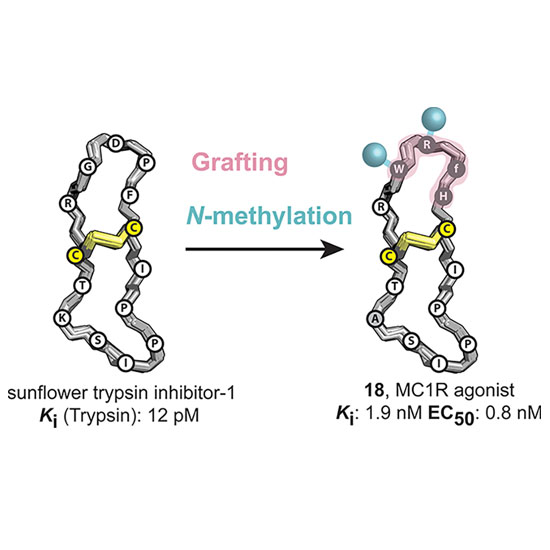Development of Novel Melanocortin Receptor Agonists Based on the Cyclic Peptide Framework of Sunflower Trypsin Inhibitor-1
31-Mar-2018
J. Med. Chem., 2018, 61 (8), pp 3674–3684, DOI: 10.1021/acs.jmedchem.8b00170
J. Med. Chem., online article
Ultrastable cyclic peptide frameworks offer great potential for drug design due to their improved bioavailability compared to their linear analogues. Using the sunflower trypsin inhibitor-1 (SFTI-1) peptide scaffold in combination with systematic N-methylation of the grafted pharmacophore led to the identification of novel subtype selective melanocortin receptor (MCR) agonists. Multiple bicyclic peptides were synthesized and tested toward their activity at MC1R and MC3–5R. Double N-methylated compound 18 showed a pKi of 8.73 ± 0.08 (Ki = 1.92 ± 0.34 nM) and a pEC50 of 9.13 ± 0.04 (EC50 = 0.75 ± 0.08 nM) at the human MC1R and was over 100 times more selective for MC1R. Nuclear magnetic resonance structural analysis of 18 emphasized the role of peptide bond N-methylation in shaping the conformation of the grafted pharmacophore. More broadly, this study highlights the potential of cyclic peptide scaffolds for epitope grafting in combination with N-methylation to introduce receptor subtype selectivity in the context of peptide-based drug discovery.











